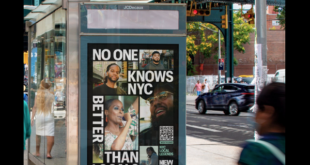[ad_1]
The U.S. Department of Transportation (DOT) just announced some foreign policy changes that will make it easier for Americans to visit Cuba.
Yesterday, the DOT lifted certain restrictions on civil aviation between the United States and Cuba, which previously had prevented any commercial or chartered U.S. flights from flying to any Cuban airport other than Havana’s José Marti International Airport (HAV).
The former restrictions, which had been instituted during the Trump Administration, were revoked after Secretary of State Antony Blinken wrote a letter to Transportation Secretary Pete Buttigieg on May 31, specifically requesting their removal.
Now, “Scheduled and charter air services between the United States and Cuban airports may resume effective immediately,” wrote Blinken, according to a Forbes report. And, instead of being able to fly to only one place, travelers will be able to choose from nine airport locations on the island.
Still, leisure travelers looking to visit Cuba will need to walk a fine line, as the authorized “group people-to-people” category comes with certain constraints and straight-up tourism is still very much prohibited. The Biden Administration is seeking to support the Cuban people in a direct way but prohibits American visitors from patronizing businesses owned by the Cuban regime—which, unfortunately, includes most of the country’s hotels.
“We’ll certainly ensure travel is purposeful and in accordance with U.S. law,” a senior White House official told Forbes. “We are reinstating group people-to-people educational travel under a general license.”
Note that, while the “group people-to-people” category is being reactivated, the “individual people-to-people” exception that existed in the Obama era remains retired, as it wasn’t quite as tightly controlled and holds greater potential for abuse by rule-breakers. Under the group people-to-people allowance, U.S. leisure travelers must be booked on an organized tour for educational and cultural appreciation purposes.
Policies toward Cuba have been revised fairly frequently over the past decade. In 2019, the Trump Administration applied some harsh terms toward the island nation, prohibiting U.S. flights from landing anywhere outside of one airport in Havana, banning cruise ships from making stops in Cuba and eliminating the “people-people” travel categories. Without those exceptions available, Americans could only legally travel to Cuba for specifically approved reasons, such as family visits, business trips or for religious or humanitarian reasons.
A category called “support for the Cuban people” also remained, which requires would-be visitors to prove that their plans involve community-based activities to support locals without patronizing government-run facilities, which also means securing accommodations that are not on the prohibited list.
This latest policy shift is consistent with a May 16 announcement from the Department of State that the Biden Administration was taking steps toward expanding authorized travel to Cuba, as well as bolstering consular services and visa processing, offering support for Cuban entrepreneurs, lifting caps on family remittance payments and reinstating the ‘Cuba Family Reunification Parole Program’.
Despite decades of political friction and the yoyo-ing policies seen in recent years, the Biden Administration views travel between the U.S. and the communist-led Caribbean country as key to bridging cross-cultural gaps. “We’ll note something that President Biden had said often, which is his belief that Americans are the best ambassadors for democratic values,” a White House official reportedly said. “And, facilitating group people-to-people travel will allow for greater engagement between the American people and the promotion of their democratic values.”
For the latest travel news, updates and deals, be sure to subscribe to the daily TravelPulse newsletter here.
[ad_2]You can read more of the news on source
 Travelsmart
Travelsmart



